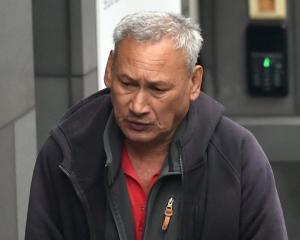
On one side are those who insist New Zealand still has a long way to go to restore the rights and place of Māori, the first people, the people of the land. Those who question this and the "covenant" that is Te Tiriti o Waitangi are divisive and racist.
Others believe it is Māori separatists and progressive elites who are creating dangerous race-based divisions. There should not be two classes of New Zealanders, especially because whakapapa (genealogy) has become intertwined. The Treaty was a product of a particular time, and fundamentalist interpretations of either the Māori or English version cannot and should not apply in today’s radically changed world.
Those of goodwill should be concerned about the chasm. They understand severe injustices predated and followed the 1840 signing of the Treaty. Disease, the intertribal musket wars, and the loss of land, mana and traditional ways of life left devastating and long-lasting legacies
They, however, believe the issues are not black and white. They know the way forward is difficult.
Damaging and divisive polarisation is a feature of international politics, writ large in the United States. Donald Trump has taken advantage of the angst of many Americans who feel shut down, belittled and excluded by progressive forces and changing attitudes.
New Zealand First and Act New Zealand have taken advantage of similar worries. The success of Te Pāti Maori reflects another side, a surging assertiveness which includes, for example, demands for a Māori Parliament.

Against this background comes a national hui of iwi, beginning tomorrow. It will kōrero (discuss) on how to hold the government to account and uphold the "interests and rights" of "te iwi Maori".
It was called by the Māori king, Tuheitia, and is at the Tūrangawaewae Marae, near Ngāruawāhia.
As well as specific iwi invitations, there is a general invitation to all New Zealanders. Thousands are expected to attend. The hui will be concerned with unified responses to what are seen as challenges to Māori progress from the coalition government, in particular upholding Te Tiriti and mana motuhake (self-determination).
Prime Minister Christopher Luxon has met privately with the Māori king and two senior National MPs will attend.
New Zealand First deputy leader Shane Jones has said the hui could turn into a "monumental moan session". The country voted for a reset and that was on its way. There was nothing in the coalition agreement that negates or delegitimises the Māori language.
He has a point on te reo. It is unique and important to New Zealand and has made too much recent progress to be reversed by a few government decisions. Its use has become well entrenched in primary schools and parts of the media.
The hui’s tikanga (protocol) is impressive — in English translation inclusivity, positivity, strength-based, peace, future-focused.
The ideals of many cultures, including traditional Māori and Pākēhā, have a lot to be commended and should be emphasised. The practice, of course, can be very different.
Reactions to the hui should be respectful, whatever one’s views. Mr Luxon should be prepared to listen, even if that does not lead to policy change.
Similarly, those who insist on current and beyond interpretations and applications of the Treaty need to be prepared to give space for differing views without decrying them as "racist rhetoric".
Mr Luxon has a thorny role in navigating a way through the claims of the coalition partners and other pressures. He could, nevertheless, find considerable electoral sympathy for a middle path.
Particularly challenging was Act’s requirement for a referendum on the principles of the Treaty. Even agreeing to a Bill on this to go to a first reading and a select committee has the potential to inflame Māori rights issues. It is not just Mr Luxon who will be called on for listening, thoughtfulness and tolerance. That should be expected of us all in what could be a demanding year.












